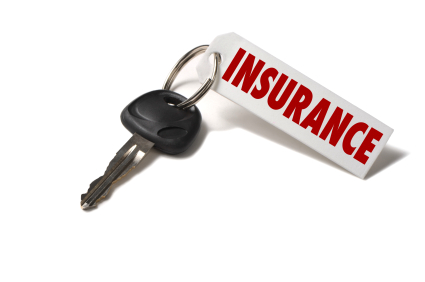Do uninsured motorists drive up the cost of car insurance?
Allie Johnson
Uninsured drivers can wreak havoc on the roads – and insured drivers’ wallets. And this is no small problem: The Insurance Research Council estimates that about 14 percent of drivers nationwide don’t have car insurance.
Experts say it’s impossible to measure exactly how much uninsured drivers cost the rest of us in higher premiums, as well as higher taxes to pay for tracking and enforcement. However, according to the most recent data from the National Association of Insurance Commissioners, policyholders paid more than $11 billion in 2008 just for uninsured/underinsured motorist coverage. More than 20 states require drivers to buy uninsured motorist coverage.
Loretta Worters, a spokeswoman for the nonprofit Insurance Information Institute, says drivers go without car insurance for several reasons. “Some drivers cannot afford insurance, and some drivers with surcharges for accidents or serious traffic violations do not want to pay the high premiums that result from a poor driving record,” Worters says.
Some states are trying to curb the problem through various measures, including technology that helps track down uninsured drivers, stepped-up enforcement, stiffer penalties, and laws that limit the ability of uninsured drivers to collect money for certain types of damages after car crashes.

States with stricter penalties likely have lower numbers of uninsured drivers, says Patrick Schmid, research director at the Insurance Research Council.
Texas boots uninsured drivers
In Texas, the TexasSure program uses a vehicle insurance verification system to help track down uninsured drivers. The system allows law enforcement officers to enter vehicle information into an online database to check whether a driver carries insurance. According to the Texas Department of Insurance, the program has helped reduce the state’s uninsured rate from about 20 percent to 13 percent, a little below the national average.
When designing the program, Texas surveyed almost 30 other states with various types of verification systems and made improvements, says Jerry Hagins, spokesman for the Texas Department of Insurance. For example, Ohio and some other states randomly select vehicle owners and ask them to show proof of insurance. Texas targets only drivers who appear to be uninsured.
In Texas, insurers must electronically submit information each week on all of their car insurance policies to the company that runs the TexasSure program for the Texas Department of Insurance. The state then tries to match each registered vehicle to an insurance policy. When a vehicle appears to be uninsured, TexasSure sends a warning letter so the owner can buy insurance or asks the owner to provide proof of insurance.
TexasSure helps to stop drivers who try to evade the law by using fake proof-of-insurance cards or buying insurance just to get a card, then dropping coverage as soon as they’ve renewed their car registration or gotten their vehicles inspected, Hagins says.
However, according to Alex Hageli, director of personal lines policy for the Property Casualty Insurers Association of America trade group, only a few states are equipped with the most up-to-date vehicle insurance verification systems, which check coverage by communicating electronically with insurance companies, instead of relying on state databases that might be a week or more old. Wyoming operates a real-time system and, according to the Insurance Research Council, just 10 percent of drivers there are uninsured.
Car insurance verification systems can help states find uninsured drivers, but they can sometimes cause snafus when there are conflicting records – such as policyholder names spelled numerous ways in the system – or when people make mistakes, such as typographical errors. “There are pluses and minuses, but for the most part it’s positive,” Schmid says.
Other states taking action
Other states with even higher percentages of uninsured drivers also are tackling the problem.
Mississippi is the worst state in the country for uninsured drivers – 28 percent, according to 2009 data from the Insurance Research Council. To reduce the number of uninsured drivers, Mississippi is rolling out a car insurance verification system similar to TexasSure. The system is expected to be in place in the summer of 2013, according to Mississippi state Rep. Gary Chism, who is also an independent insurance agent. Drivers who are caught without insurance could face fines as high as $500, he says.
“(Responsible people) have liability insurance, and this is going to force those who don’t to come along with us,” says Chism, noting that a basic liability policy for a driver over age 25 might cost about $50 a month. “I bet you that same person who says they can’t afford it has probably got cable TV or satellite TV, and they’ve certainly got a cell phone, all of which costs more than that.”
Some states are getting tough on uninsured drivers in other ways. Under a law that took effect in 2012, Louisiana lets cops tow and impound a vehicle after a traffic stop or accident if the driver can’t hand over proof of insurance. “If they get stopped and don’t have insurance, they could lose the vehicle,” says John Scurich, an aide to Louisiana state Rep. Ray Garofalo.
Another idea being considered by other states is “no pay, no play” — laws designed to prevent uninsured drivers from being compensated for certain types of damages, such as pain and suffering, that don’t involve direct monetary losses. About 10 states have such laws on the books, Schmid says. “If you’re not paying into the system, you can’t obtain non-economic damages,” Schmid says.
State crackdowns on uninsured drivers can carry big consequences, ranging from being forced to get insurance, large fines (up to $5,000, according to the Insurance Information Institute) to suspension or revocation of a driver’s license or car registration. Deeia Beck, executive director and public counsel for the state-run Texas Office of Public Insurance Counsel, says: “If they get caught without insurance, they will likely be rated as a higher-risk driver, so insurance is going to be more expensive for them.”
